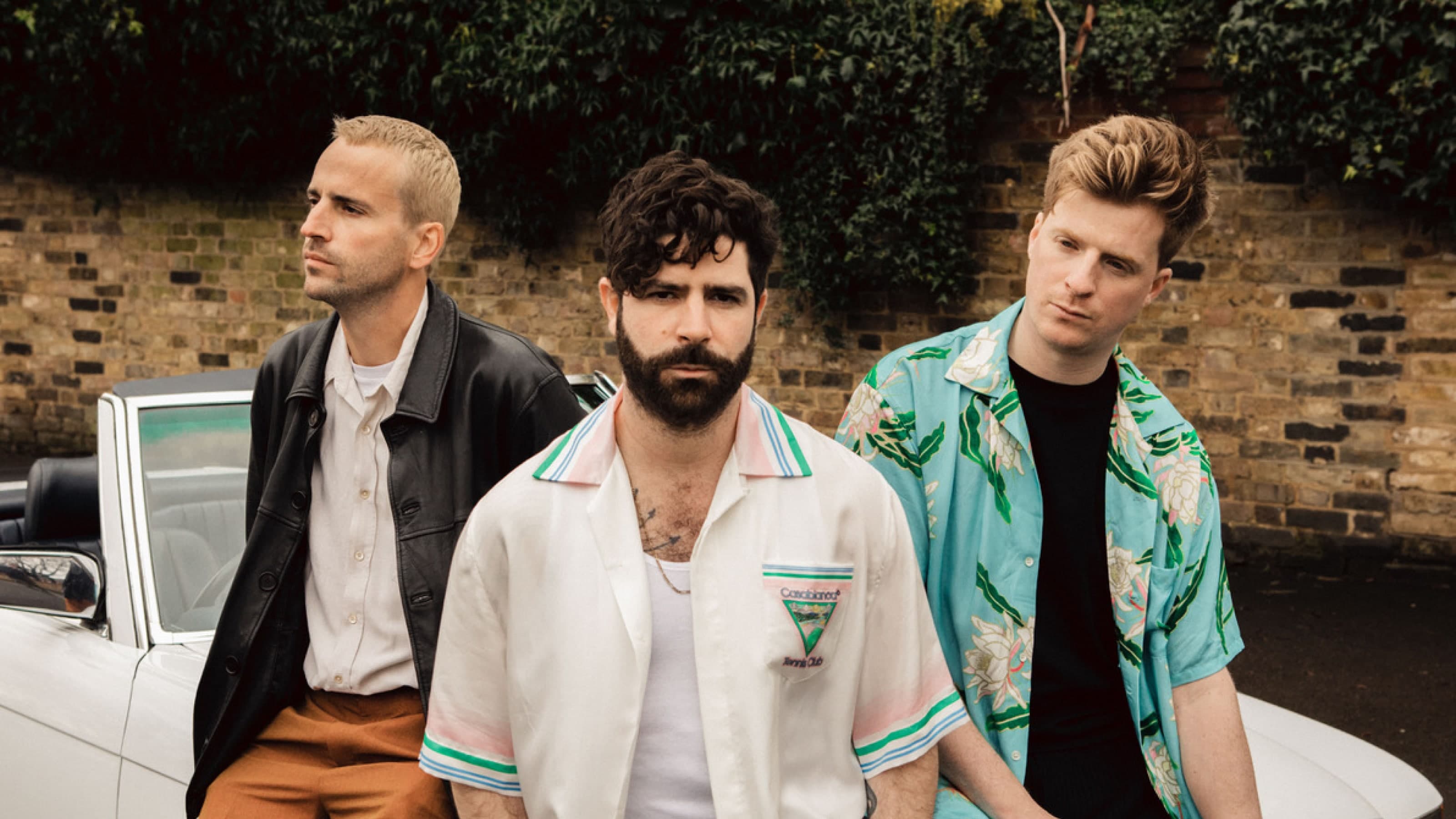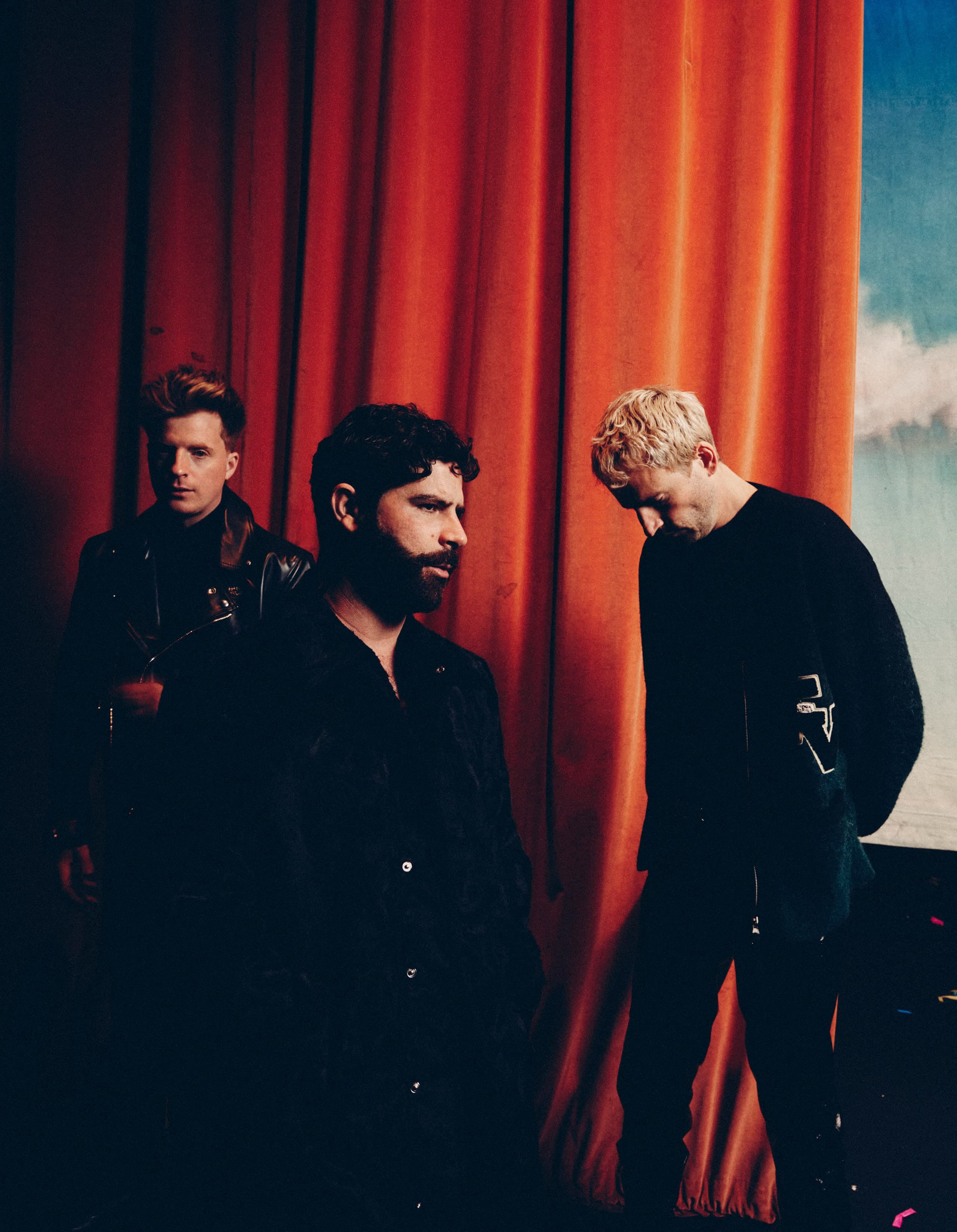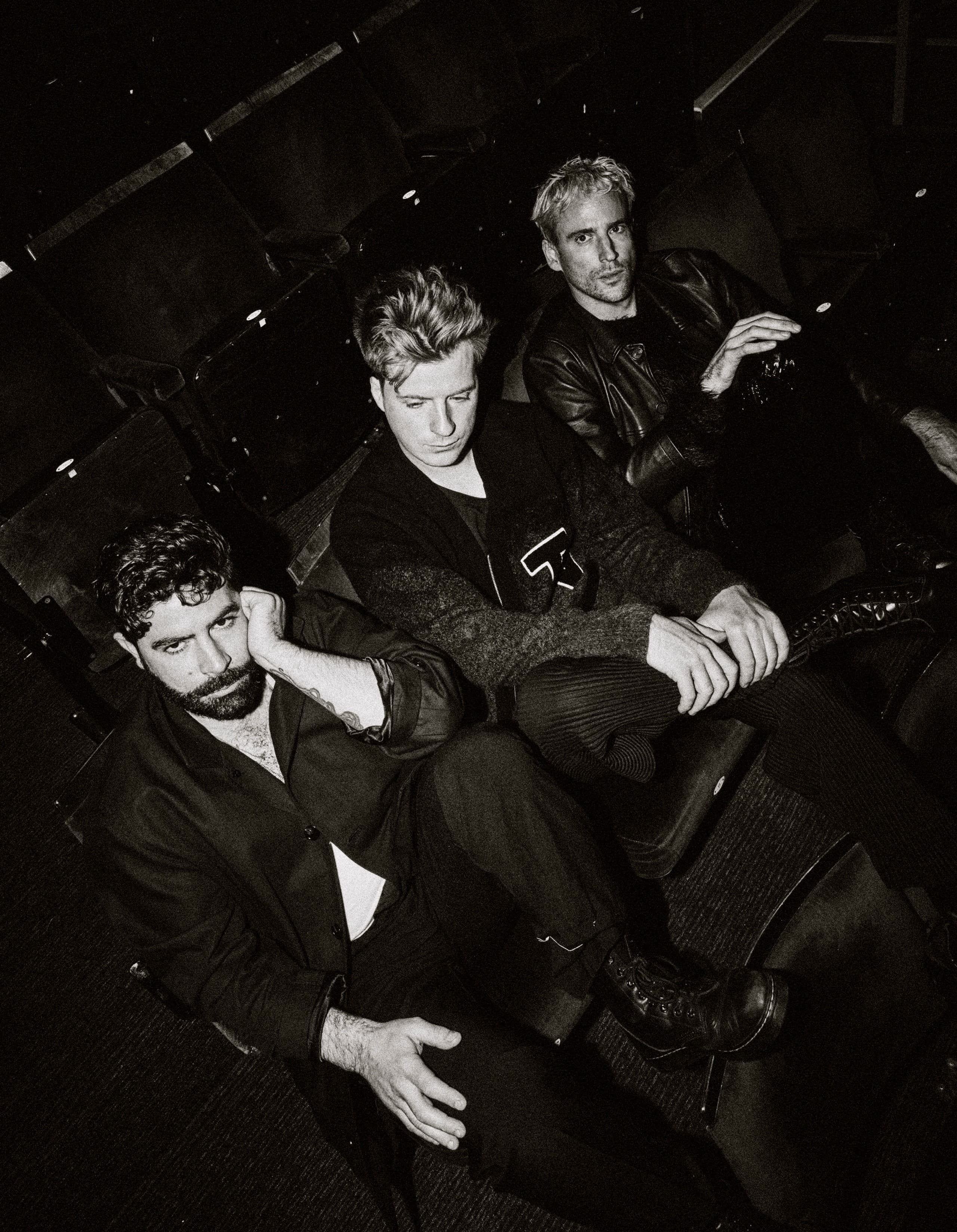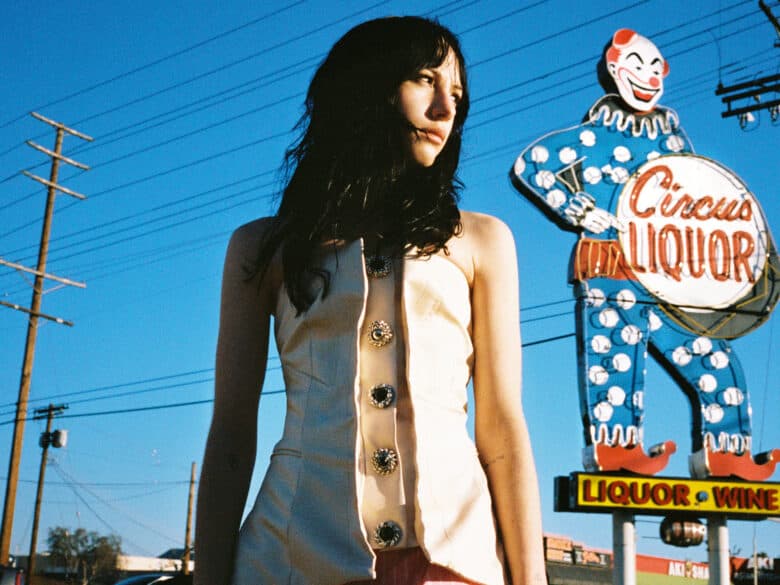“We don’t heedlessly rush to the top”: Foals on change, success, and the key to their longevity

There’s a knock on the door in the middle of my conversation with Foals. We’re informed that a dog will shortly be coming into the room to check for explosives. It’s something I’ve never heard during an interview, but Foals are unfazed. After over 17 years in one of the UK’s biggest rock bands, Yannis Philippakis, Jack Bevan and Jimmy Smith are seasoned veterans. The past two years, however, pushed them into uncharted territory, as it did for the music industry and the world writ large.
“The pandemic totally disrupted our normal cycle,” Philippakis says, as we speak on the opening night of their long-anticipated London tour. “All of that energy we had building up to going on tour just dissipated. When you expect to be on tour for a year, you definitely shift mode… it was an interesting one.” The atmosphere in the room, though, isn’t focused on the spoils of the pandemic nor time lost, it’s one of celebration; Foals have been itching to be back on stage, and it’s reflected beautifully on their new dance album, Life Is Yours.
Released three years after their last record, Life Is Yours is almost painfully on the nose about being a going out album, but that’s precisely what makes it so of the moment. Tracks like ‘Wake Me Up’ and ‘2am’ aren’t subtle, but they perfectly capture the unflinching euphoria we’re finding in collective revelry as we enter the summer months. “We talked about it being a going out record, the kind of you put on as you’re getting ready with your mates,” Smith, the band’s guitarist, comments. “Everyone’s kinda cottoned on to the right message and it’s fun to not be too serious for a while.” Bevan, on drums, agrees: “We were writing it when all of that was taken away, so it really was a genuine exercise in escapism.”

During the pandemic, Smith found himself stranded in LA after a visit to his girlfriend, while Philippakis and Bevan were locked down in south London. Upon Smith’s return, however, the isolation of lockdown made for fertile ground in regards to finishing the album. Life Is Yours is a standout record for Foals, in part because it followed 2019’s two-part album, Everything Not Saved Will Be Lost, which tackled political issues including Brexit. While the new record can be read as a response to Covid-19, it was also time for something more lighthearted. “People have different records in them and had we not made the last album, this record may have been a political one or a darker listen,” Philippakis tells me from the backstage area at Kensington Olympia. “But often, the records we make are a reaction to the last one, which felt quite foreboding and concerned with what was going on in the world. When we finished that, we wanted to write an escapist record where the songs aren’t engaging with the political sphere, where it can really be enjoyed and that’s what we’ve done.”
But that doesn’t mean that the album was inadvertently affected by the political issues of the day. The music video for the energetic ‘2am’ — which Philippakis describes as one of their poppiest songs — was filmed in Kyiv, two weeks before Russia’s invasion of Ukraine in late February. The stark contrast between the two events is acknowledged by the band, who previously shot a music video in the city. Philippakis considers: “It was a great experience to work there, everyone was incredible, and what is happening is obviously tragic. There’s definitely something deeply disturbing about thinking about the night before we shot the video; when we were walking down the streets of Kyiv with the director… and now none of those people are living normal day-to-day lives. It makes the video this kind of strange artefact where we’re all dancing around in colourful outfits. It’s strange and affecting.”
Another major event came for the band in late 2021 when keyboardist, Edwin Congreaves, left the band to study Economics, with a view to help mitigate the climate crisis. This followed bassist Walter Gervers’ departure in 2018, but it is evident that there is no bad blood between this band of brothers. “Look, we knew he was going to leave,” Smith levels. “There’s nothing worse than being on tour when you don’t want to, and there’s nothing worse than having someone on a bus like that. It spreads. His head was buried in books while we were doing tequila shots. It’s nice to know there won’t be any more nasty surprises, really.” Philippakis chimes in: “He’s coming tonight! We can’t get rid of him. But if anything, it was more shocking when Walter left. I was like, et tu, Brute?” The trio laugh.
It must have been a shakeup, though, I wonder, questioning whether it prompted an internal reckoning — 17 years as friends and business partners is a long time, and many bands before them have stagnated into complacency after gaining headline success. There’s a pause, and then, with a sense of assurance, Philippakis asks his bandmates, “We feel good where we are, right? There’s not one big thing that we’re burning to do as long as it remains feeling fresh”. Smith corroborates, “We know when our next big step is coming. We’ve turned stuff down in the past because it’s been out of our comfort zone. We’ll wait a year, hone our craft and then it feels great. We don’t just heedlessly rush to the top.”

We turn to their reputation as boozers. For years, much of the press around Foals has revolved around their alleged drinking and Philippakis’ exhilarating performances — two things that inevitably work in tandem. To me, though, they’ve always seemed like a couple of British lads who like a pint, as their longstanding PR echoes before the interview. “We don’t come across as a frivolous band, so knowing that we do have a bit of fun and like to party isn’t a bad thing. It’s not for every band, and it’s not to say that it hasn’t caused any issues, but we make sure we play well too,” Philippakis shrugs. Bevan adds with a chuckle: “We look out for each other every now and again, like if someone turns yellow or something.”
But they’re frank about needing help to deliver the kind of high-octane performances they’re known for. As Bevan explains, they have to be “wound up in a way” and experience a “loss of inhibition” to let loose. It’s understandable, and certainly, in their near two decades together, no member of Foals has suffered from drug addiction. They chalk this, and their longevity, down to being somewhat self-contained. “In the early days, as much as we thought the popular scenes were cool, we were also in opposition to that,” Philippakis recalls of the release of their first album, Antidotes. “We thought that we were cool, and there was definitely a sense of us being outsiders. There was a heady element to that London scene that we didn’t get wrapped up in fully, and if we had, we probably could have gone off the rails.” There was also the issue of having to return to Oxford every night, after their shows: “The next day, we’d just be like, let’s write some tunes, rather than hanging out with whoever…”
After being at the top of their game for so long, it’s clear that Foals are intentional about wanting to preserve their reputation as a great live band, but broader questions about their legacy are things they only consider in passing, for now at least. As Philippakis points out, it would be strange to think about anything but the here and now given that they’re about to play a slew of sold-out shows in London. “We just want to be passionate and primal with what we do, and that’s reflected in the record. We want it to be the soundtrack for people reemerging into the world.” Smith adds: “It goes back to simple entertainment. You can come to Olympia and escape for an hour and a half with us. You can just see the change in the crowd every time… by the end, it’s like Covid never happened.”

